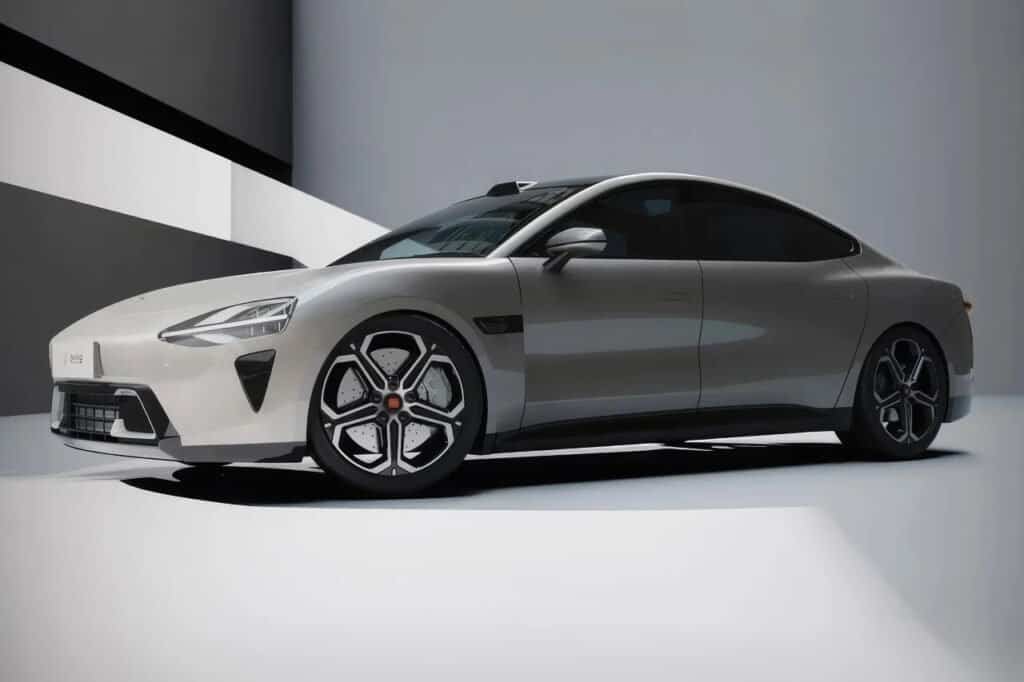Industry data indicates that Xiaomi, a Chinese smartphone manufacturer, sold over 7,000 units of its debut model, the SU7 sedan, in April, making it the eighth-largest electric vehicle upstart in the nation.
The world’s largest vehicle market, where businesses have been engaged in a severe pricing war due to declining demand, is about to undergo yet another upheaval as a result of Xiaomi’s forceful entry into the competitive EV market in China. Thanks to its well-liked smartphones and domestic goods, Xiaomi is already a household name in China.
It becomes one of the new automakers concentrating on EV production, among other upstarts like Nio and Xpeng. Legacy companies like Volkswagen and well-known EV manufacturers like Tesla, BYD, and Geely are not included in this category.
Since the model’s late March launch, Xiaomi has delivered 7,058 SU7s in April—its first full month of sales. This year, the company hopes to sell over 100,000 devices, or an average of 11,618 each month, for the rest of the year. According to Reuters’ examination of monthly sales data from ByteDance’s car information website, Dongchedi, it is now the eighth-biggest EV startup in the nation, surpassing the Avatr EV brand from state-owned Chongqing Changan Automobile.
Other Chinese companies after Xiaomi
An increasing number of upstarts have entered China’s EV industry, including EV sub-brands from established automakers like Geely’s Zeekr and GAC’s Aion, as well as pure EV manufacturers like Nio and Xpeng. Harmony Intelligent Mobility Alliance (HIMA), supported by Huawei, is another of the recent upstarts. According to Dongchedi data, brands included in the HIMA are Aito and Luxeed, whose combined EV sales in April amounted to 20,819 units.

Certain Huawei cars, like the Aito M5 and M9, are available in both extended-range and pure EV models and as both are counted as EVs, the real number of pure EV sales would be less than what is stated. There is no sales breakdown of the variations provided by Dongchedi. With Volkswagen, which has fared better than most other foreign legacy auto brands in battling with Chinese EV companies, Xiaomi is expected to have monthly sales of more than 11,000 units for the balance of the year.
Through two Chinese joint ventures, VW delivered 13,108 EVs in April under the ID series. The vehicle’s starting price, 215,900 yuan ($29,845.59), was less than that of Xiaomi’s standard SU7. Some analysts predict that in the upcoming years, the market will become even more optimistic about Xiaomi. Sales of the Xiaomi car are expected to reach 240,000 units in 2025 and 348,000 units in 2026, according to HSBC Qianhai.
With 120,234 sales last month, local champion BYD topped China’s EV sales statistics. The SU7 was less expensive than the more accessible variants, which drove more sales. The massive American company Tesla sold 31,421 Model 3 and Y vehicles in April.
In China, the base model of Xiaomi’s SU7 costs almost $4,000 less than that of Tesla’s Model 3. Many EV manufacturers are now focusing on international markets as they battle the fierce competition in the Chinese market. According to figures from the China Passenger Car Association, domestic passenger vehicle sales in April fell 5.8% from a year ago, while exports of the vehicles reached a record high.